Find out how Practical Action Bolivia involved local youth in their Flood Resilience Measurement for Communities approach. And what the benefits were, to the young people, their communities, and to Practical Action.
Practical Action’s flood resilience work in Bolivia is grounded in the use of the Zurich Flood Resilience Alliance’s Flood Resilience Measurement for Communities (FRMC). The FRMC is a framework and tool that helps communities understand their existing level of flood resilience and identify appropriate action for enhancing it.
The FRMC approach utilizes data collected via a mobile application through house-hold surveys, focus groups, and interviews with key informants. To do this data collection in the 13 Bolivian communities where they work, Practical Action recruited a team of 16 Field Workers.
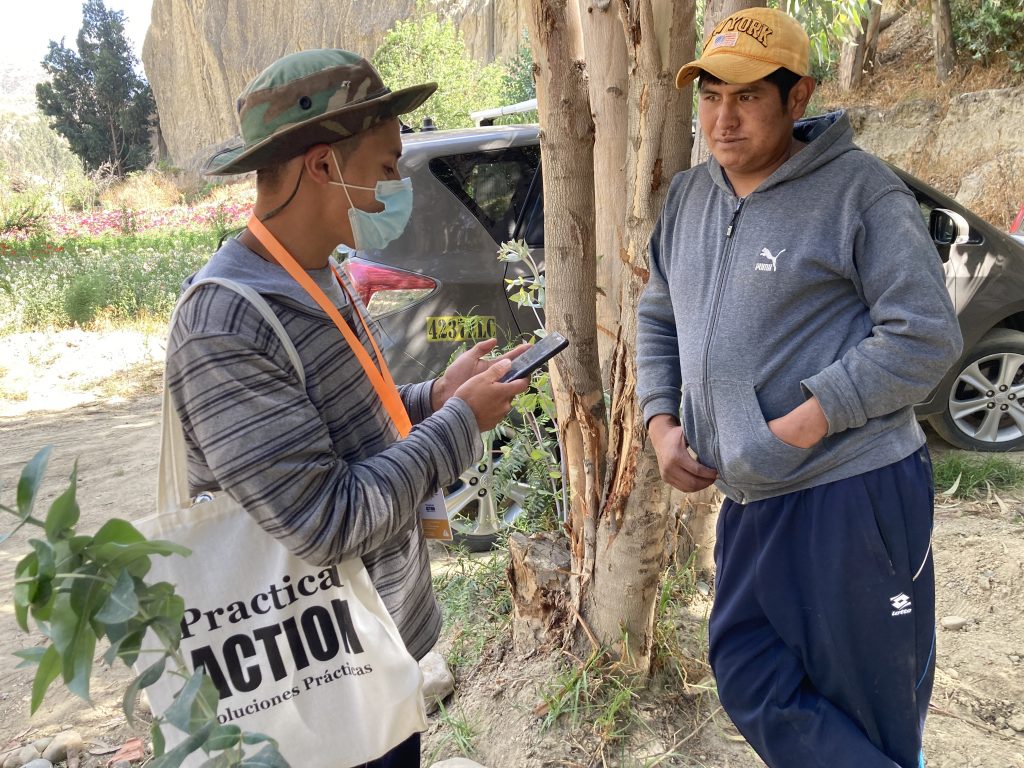
Most of these Field Workers were young people, including recent graduates, local to the areas where we work. It was vital that they speak Aymara and understand the local context. Field Workers also need to be confident with technology, particularly mobile phone applications and management of digital information.
A user-friendly application for data collection
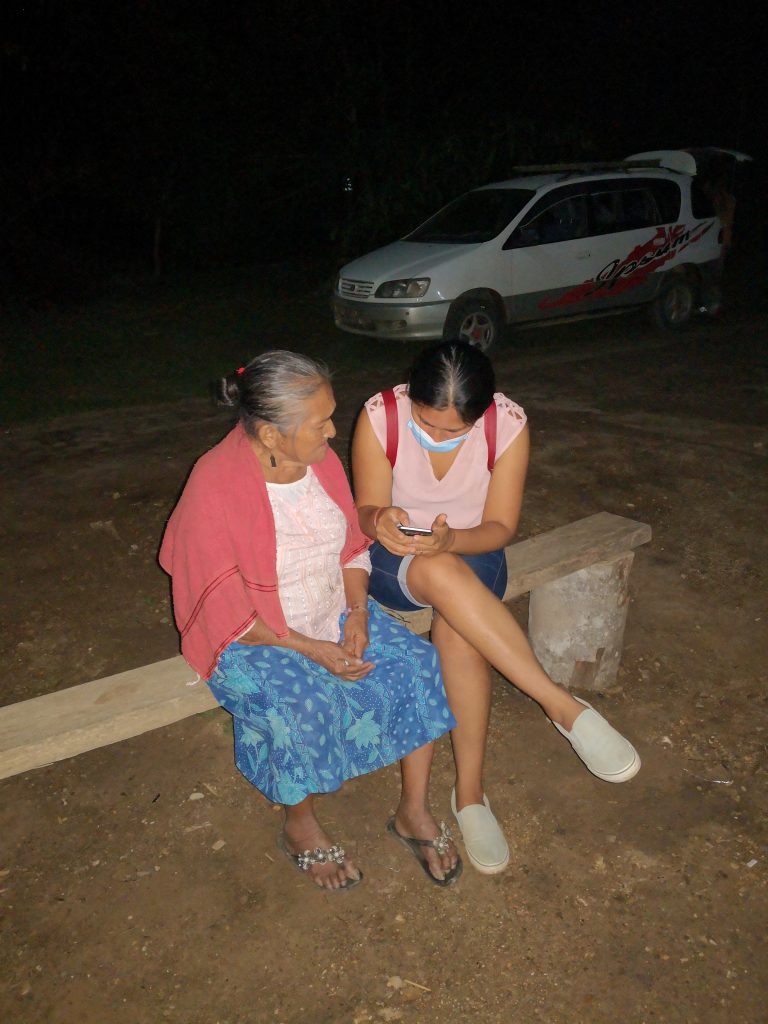
In a society where the work, experience, and perspective of young people is often overlooked we choose to prioritize the recruitment of young people to support our work. One of the benefits we expected from working with younger people was that their familiarity with technology.
The young Field Workers’ experience with mobile applications made it easy to train them in using the FRMC software. Feedback from Field Workers suggested that the FRMC application is user friendly and easy to apply for people familiar with mobile technology, and probably for those who aren’t too.
I received training and guidance material on how to use the app. It has been possible to collect the information directly on the cell phone, and it is not necessary to be connected to the internet, the information collected is not lost.
Ramisunku, FRMC Field Worker
Nowadays young people have an easier time using digital tools and reaching all communities. We can also support improving care and resilience practices in communities, starting with application management and data collection.
Hugo, leader of Youth in Action platform and FRMC Field Worker
For those who do not have experience with technology, it would also be easy to use because the interface tells you what needs to be filled and the rest is almost intuitive.
Alisson, Sociologist and FRMC Field Worker
Translating flood resilience language to the local context
The field work team was trained both in how to use the mobile application and on the central concepts of resilience measuring. The biggest challenge they all faced was in how to adapt the questions in a way that was relevant and accessible to the respondents, without losing the question objectives.
Questions in the FRMC need to be translated not only to the local language but also the local context. Having people who know the geographical area, the cultural context, or who speak Aymara made this possible, especially when working with rural Andean women, who feel more confident speaking in their native language.
Trying to make the concepts understood was the most difficult thing we had to do.
Hugo
Filling in the information is instantaneous, what takes time is to formulate and interpret the questions, contextualize them to the environment. This requires a prior knowledge of the place, its livelihoods, economic systems, social organization etc.
Alisson
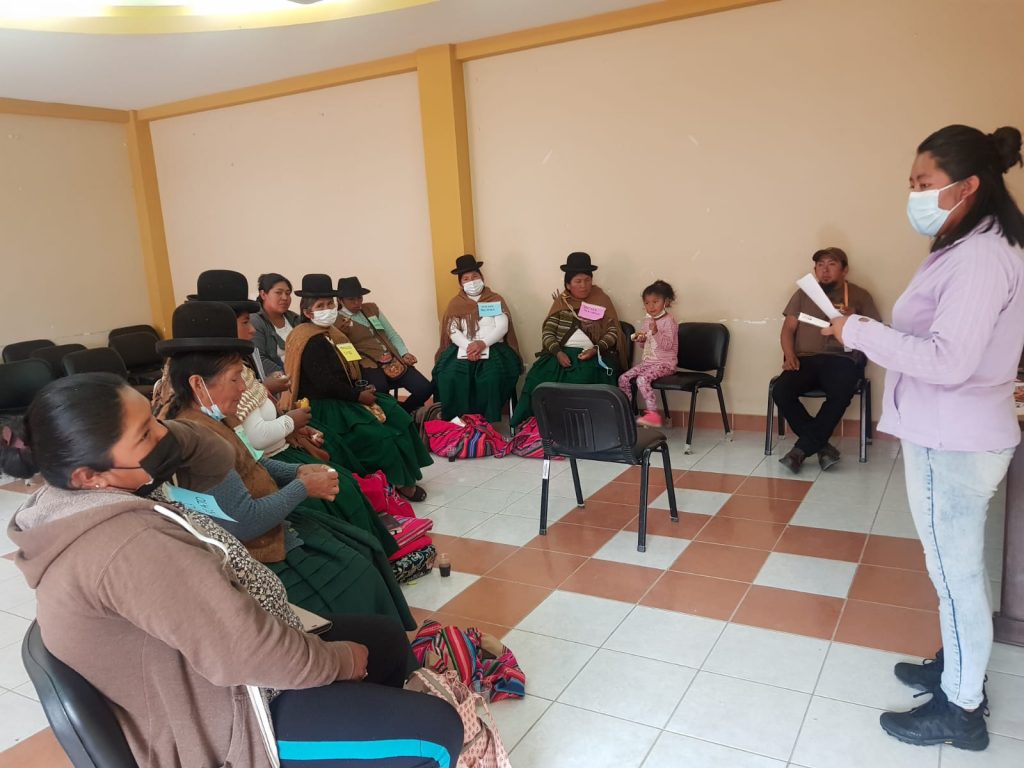
In addition, some of these young people had a history with the communities in question which legitimized their involvement and made the communication even easier. This was the experience of Rut, an indigenous woman whose father was a traditional wisdom authority in the territory. Rut herself has a leadership role as a member of a recognized youth platform:
The distances to the communities were very long, but once I arrived the things turn easier as people recognized me either because of my father or because the platform I’m involved in.
Rut , Community Tourism Expert and FRMC Field Worker
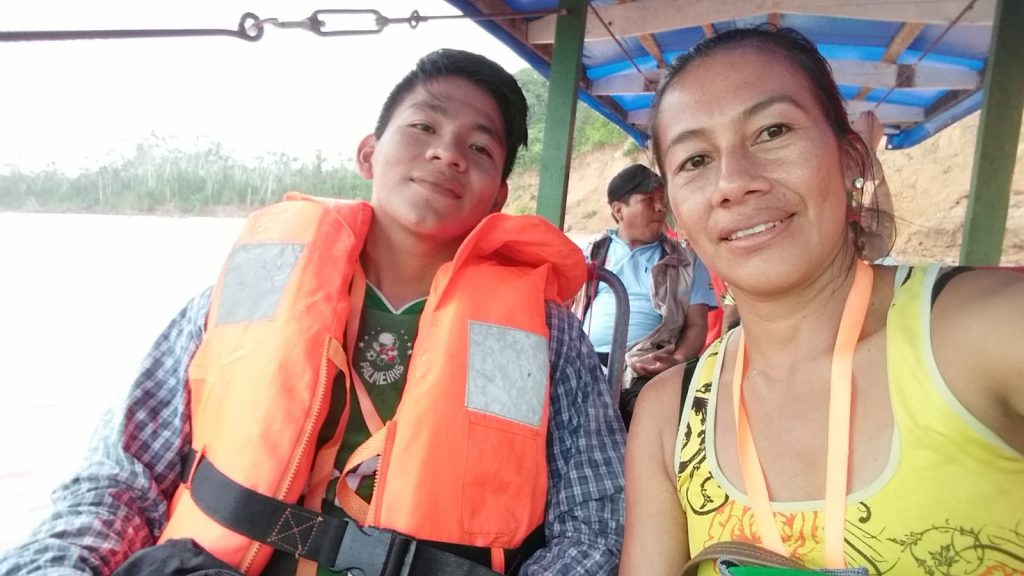
Building skills for future career prospects
The young people who carried out the FRMC data collection learned a lot about the communities they worked with, about flood resilience in general, and have gained practical skills and experience which will help them as they progress in their careers.
Some communities are resilient, but they repeat actions that make them vulnerable. For example, some communities continue to settle in places that they know are going to flood, but for productive reasons they are still there.
Hugo
In some neighbourhoods there is no clean drinking water, now I know that when the floods come the water is dirty and it was one of the main challenges.
Rut, reflecting on the differences between the impacts of floods on these communities and the more urban, still flood affected, setting where they live.
Surveying people, interacting with them, learning how to deal with different people, that strengthens you as a professional, because these are skills that you can use in any job.
Hugo
Since we are young we are learning, we have learned not only to use the application but to do surveys, and how to express ourselves in front of people. This helps us to function from here on out. I’m grateful for the opportunity it has given us young people.
Rut
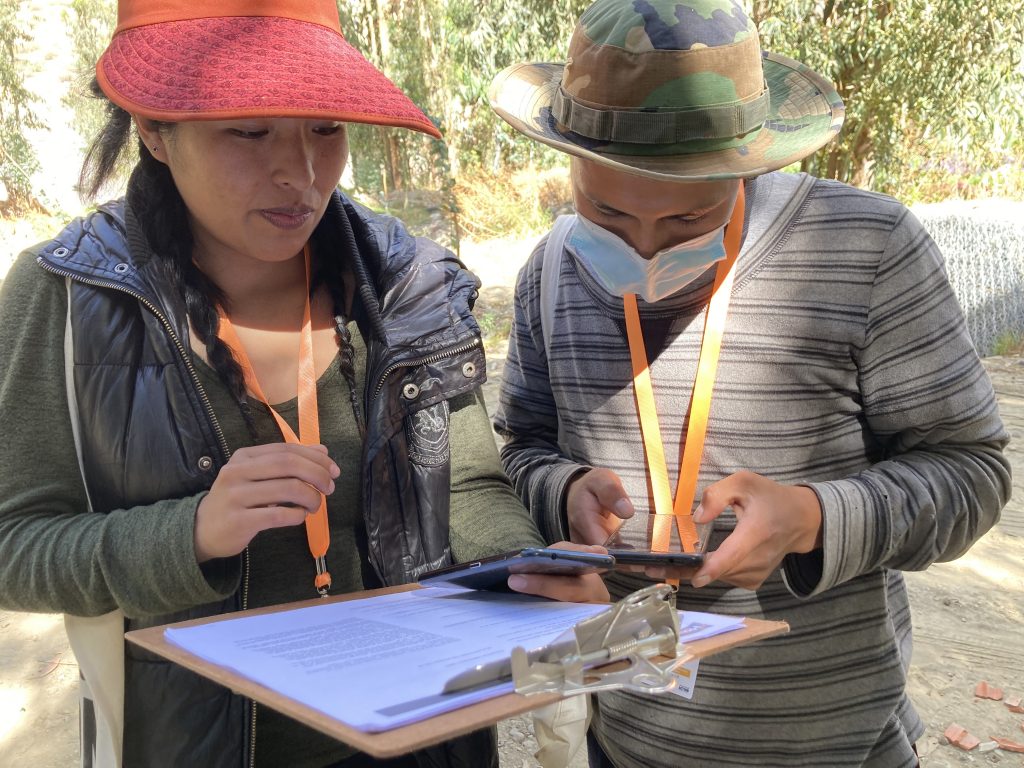
Our experience, and the feedback these young people have shared with us, shows that we made the right decision to invest in young people when recruiting for our Flood Resilience Measurement for Communities data collection.
We encourage other organizations applying the FRMC to do the same, not only to build the skills of local youth but because of what they can offer in terms of experience, engagement, and expertise.

Comments